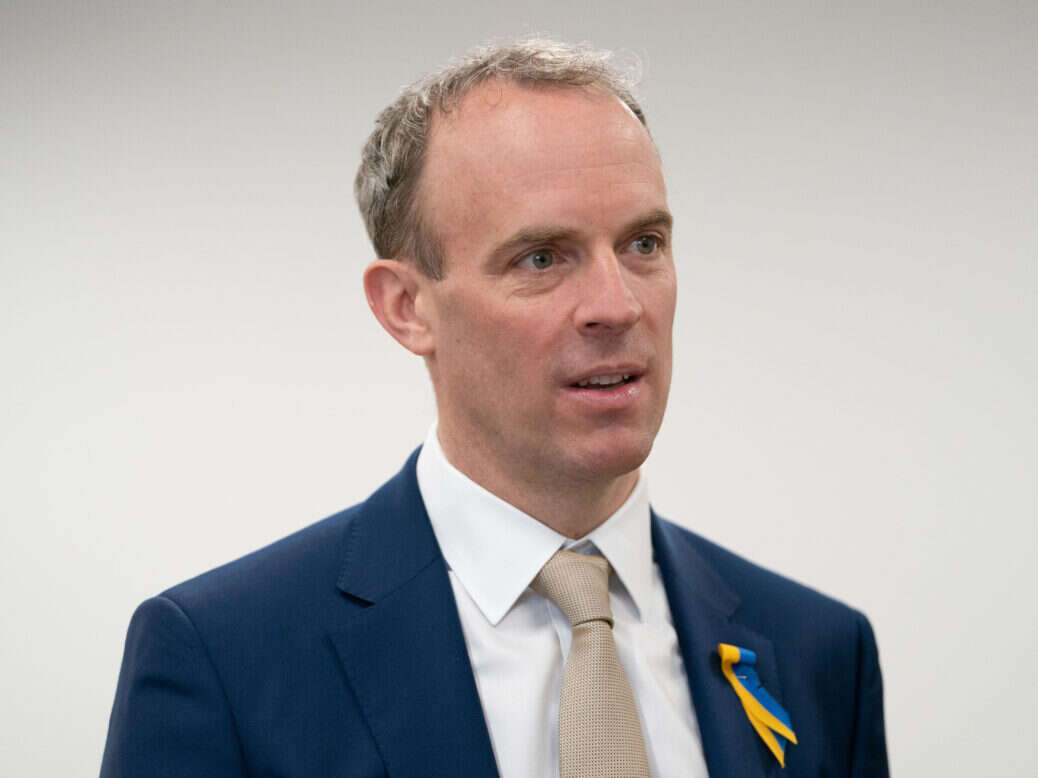
The UK Government wants to make it harder for courts to order journalists to disclose their sources in its proposed Bill of Rights.
Details of a Bill of Rights to replace the Human Rights Act were revealed on Wednesday, with Justice Secretary Dominic Raab (pictured) promising it will “reinforce freedom of speech”.
The Government said the bill will “boost freedom of the press and freedom of expression by introducing a stronger test for courts to consider before they can order journalists to disclose their sources”.
The text of the bill says courts will not be able to require anyone to disclose a journalistic source, or prosecute them for contempt of court for not doing so, unless they are satisfied it is necessary in the interests of justice or national security, or for the prevention of crime or disorder – very similar wording to existing legislation within the Contempt of Court Act 1981.
However the law is furthered in the new bill as it states there must be “exceptional and compelling reasons why it is in the public interest for the disclosure to be made”.
In making this determination, the court must “give great weight to the public interest that exists in protecting journalistic sources…” the bill goes on.
The bill still includes the Article 8 right to privacy and Article 10 right to freedom of expression under the European Convention on Human Rights.
Raab wrote in an op-ed for The Sun that freedom of speech is currently “under attack, from expanding privacy law to stifling political correctness”.
The publishers of the Mail, i, Telegraph and Times clubbed together to lobby the Government for a provision in the Bill of Rights meaning privacy claimants would have to meet a “threshold of actual or likely serious harm to a core aspect of their private life” – similar to the threshold needed to sue for defamation.
They said the current Section 12 of the Human Rights Act 1998, which states courts must give “particular regard” to the right to freedom of expression, “has been emasculated by the courts” and that the balance between free speech and privacy needs to be “reset”.
Currently the Human Rights Act instructs UK courts to balance rights under Article 8 (right to respect for private and family life) and Article 10 (freedom of expression) of the European Convention on Human Rights – although Raab told MPs the UK would not be leaving this international agreement.
The Government said on Wednesday: “The bill will make clear that the UK Supreme Court is the ultimate judicial decision-maker on human rights issues and that the case law of the European Court of Human Rights does not always need to be followed by UK courts.”
Faced with criticism over the fact the bill will make it easier to deport foreign offenders and allow the UK to ignore interim rulings from the European Court of Human Rights such as those that stopped a deportation flight to Rwanda last week, Raab told LBC on Wednesday morning: “No one is talking about tearing up human rights in this country. We are staying in the European Convention, we are going to reinforce those quintessentially British rights like free speech.”
However several freedom of expression organisations disagreed that the bill will boost this right, saying it will “undermine the universality of all human rights and weaken the ability of courts to give effect to protection of fundamental human rights, including freedom of expression”.
Index on Censorship, Article 19 and English PEN jointly said the existing Human Rights Act had successfully “bolstered free expression in the UK in a number of areas: it has strengthened defamation law; enhanced protection of journalistic sources and material” and more.
They urged the Government to deal with what they described as a “number of problematic laws and legislative proposals” recently brought forward such as the Online Safety Bill and Police, Crime, Sentencing and Courts Act if it “is serious about its purported goal to strengthen freedom of expression in the UK”.
Picture: PA Wire/Joe Giddens
Email pged@pressgazette.co.uk to point out mistakes, provide story tips or send in a letter for publication on our "Letters Page" blog
